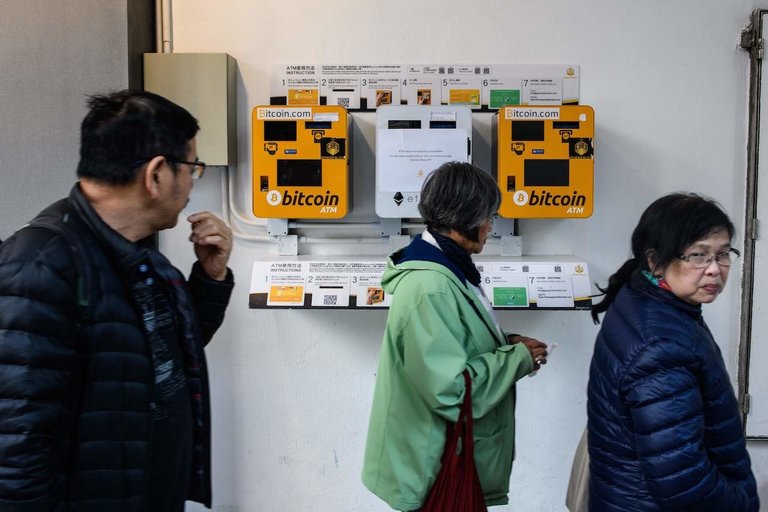Last month, bitcoin plummeted to its lowest level since late November, erasing months of added value in the span of a few hours and, tragically, stripping away the Winklevoss twins’ briefly-attained billionaire status. Though the market eventually recovered, on Friday morning things went from bad to worse, with the hyper-volatile cryptocurrency falling to less than half its December peak of more than $19,000. Its fall seems to have spooked the rest of the market, too. From Thursday into Friday, the value of all main cryptocurrencies in circulation dropped from just over $500 billion to about $400 billion—a staggering loss for an asset class that once seemed indomitable.

The massive sell-off appears to have been spurred by fears of a regulatory crackdown, as well as concerns about market manipulation. A new report from The New York Times this week suggests that Bitfinex, a virtual exchange, and its currency, Tether, have been helping to artificially prop up the value of bitcoin and other cryptocurrencies. The company claims Tether is backed by U.S. dollars. But the Times noted that the creation of hundreds of millions of dollars’ worth of new Tether regularly coincides with a dip in the price of cryptocurrencies. “This absolutely reeks of price manipulation,” security researcher and market analyst Tony Arcieri wrote in a recent blog post. Bitfinex, meanwhile, severed ties with its auditor last week, stoking more suspicion. “It’s a signal to the market of what those who have scrutinized the situation already believe: there is a problem here,” Jill Carlson, a former Goldman Sachs trader who now consults with cryptocurrency companies, told the Times. “The dissolution of a relationship between an auditor and a company is very rarely a good sign that the company is behaving in accordance with market best practices.”
As Tether raises alarms in the U.S., authorities abroad are also considering regulation. This week, India’s finance minister said that his country’s government “does not recognize cryptocurrencies legal tender or coin and will take all measures to eliminate use of these crypto-assets in financing illegitimate activities or as part of the payments system.” Adding to leaders’ aversion is the fact that government officials in Russia and Venezuela are attempting to tap into cryptocurrencies as a way to circumvent sanctions; Venezuelan President Nicolás Maduro said this week that the country will have a pre-sale on its “petro” cryptocurrency, with the intention of helping Venezuela evade sanctions, and an adviser to Russia’s Vladimir Putin suggested that a “cryptorouble” would similarly benefit the country. There is some doubt as to whether they’ll succeed—“I don’t think they have the [technical] capacity to pull this off,” Nick Martin, founder and C.E.O. of TechChange, told Axios—but the news has fueled calls for regulation on a global scale.
bitcoin’s true believers, a government crackdown only confirms the inherent value of cryptocurrencies, which are designed to be anonymous and stateless. But not everyone appears to have the same level of faith. Optimists expected that the recent creation of an options market for digital currencies would stabilize values by increasing liquidity and pricing accuracy. Instead, the introduction of a futures market appears to have helped precipitate a crash. That could be a good thing in the long run: without a market-wide correction, and more checks and balances, there’s no way cryptocurrencies will be widely adopted. Still, there’s almost certainly too much uncertainty at this point for the price to stabilize in a way that would make digital currency reliable as an actual means of exchange, as opposed to a speculative asset. And rumors of price manipulation only underscore that this is still the Wild West. “Greater assurances are needed that the trades taking place are in fact legitimate and reflect buying and selling by independent actors,” Tyler Moore, an assistant professor at the University of Tulsa, told the Times. “Unless and until such oversight is implemented, we cannot trust the exchange rate to reflect only legitimate sources of supply and demand.
You've got a valid point there. We need governments to fast track crypto regulations or else the system will be hijacked by the greedy.
Yes sir
Hi! I am a robot. I just upvoted you! I found similar content that readers might be interested in:
https://www.vanityfair.com/news/2018/02/could-price-manipulation-be-killing-bitcoin